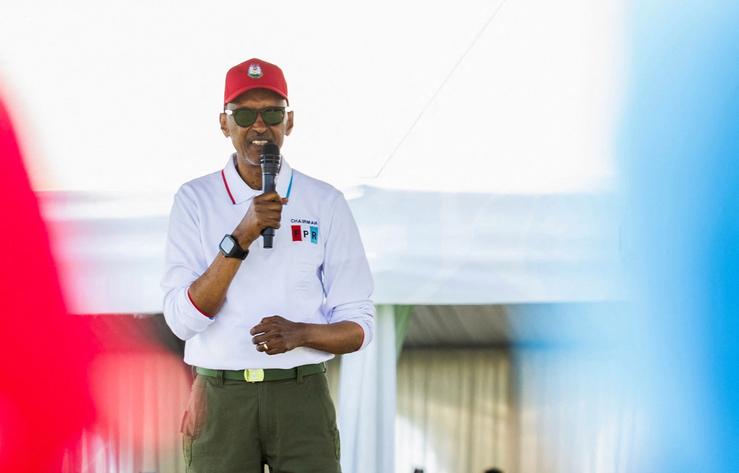The News
Rwandan President Paul Kagame is on course to win a fourth term in office after provisional results Monday showed him winning more than 99% of the vote in an election that will extend his 24-year rule by another five.
Only two candidates were allowed to run against him, and the pair received just 0.83% of the vote between them, according to the National Electoral Commission.
SIGNALS
Observers say the elections were neither free nor fair
Kagame has won more than 90% of the vote each time he has sought re-election, but these contests have been regarded by human rights groups to be neither free nor fair: Observers have cited reports of political intimidation, unfair registration, the blocking of challengers, and ballot stuffing. His administration argues that the legacy of the 1994 Rwandan genocide means the country is not yet ready for a kind of politics that “has the tendency to create divisions,” an expert in international politics told The Guardian. The regime prioritizes the security provided by so-called consensus democracy over liberty, a Rwanda researcher argued in The Conversation.
Kagame’s record is largely one of strong economic growth
Supporters say Kagame has presided over an unprecedented stretch of economic growth and stability, registering average GDP growth of around 8% per year, but critics argue that official figures are manipulated — a Financial Times investigation in 2019 alleged that key poverty statistics had been massaged, claims Rwanda denied. Kagame has also fostered a more knowledge-based economy by strengthening the private sector and expanding connectivity and digitalization, though tensions with neighbors have hampered efforts to attract foreign direct investment, an Africa expert noted in GIS.
Tensions with the DRC
Tensions with neighboring Democratic Republic of Congo intensified as Rwandans went to the polls. A United Nations report released last week alleged Rwanda was the “de facto” leader of the M23 rebel group fighting the Congolese military in eastern DRC, Al Jazeera reported — claims Kigali denied. The civil war in the DRC has displaced around 1.7 million people, and is “perhaps the only conflict in the world that the international community could resolve relatively simply,” by ending support for Kagame and setting up an international criminal tribunal, a columnist argued in The Guardian.



